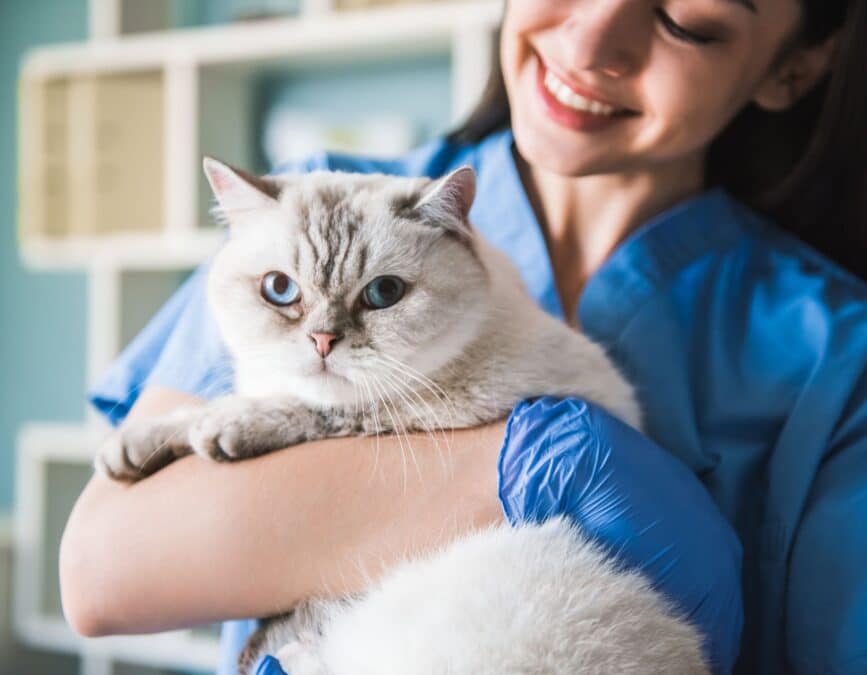
How Does a Veterinary Technician Help Your Pet?
October 17-23 is National Veterinary Technician Week and a great opportunity to highlight the invaluable contribution our wonderful veterinary technicians and veterinary assistants make to Animal Emergency Hospital Volusia. The hard work, commitment, and compassion they show every day is what makes our hospital succeed, and we’d like to invite you to join us in thanking them – especially in light of the difficult role they’ve taken on as essential workers during these challenging times.
What are Veterinary Technicians and Veterinary Assistants?
Veterinary technicians are skilled veterinary professionals who assist veterinarians just as human nurses assist doctors. They must complete a significant amount of training, even more so at the level of emergency care. To become certified typically involves two or four years of secondary education resulting in an Associates or Bachelors in Veterinary Technology, followed by a rigorous four-hour exam. Veterinary technicians can choose to continue their education and become specialists in a wide variety of specialties, from emergency care to dermatology. Just like their counterparts in human nursing, they must complete annual continuing education credits to keep their credentials current.
Veterinary assistants provide invaluable support to technicians and veterinarians as a key part of the veterinary team, performing many aspects of patient care from restraining pets to administering medications. Many veterinary assistants train on the job, although there are some formal training programs available. Some veterinary assistants eventually go on to become a licensed veterinary technician.
In addition to veterinary hospitals, you’ll find veterinary technicians and assistants working in zoos, research facilities, aquariums, the military, and they are often first responders in a disaster taking care of animals in trouble.
How Do Veterinary Technicians and Assistants Help My Pet?
Veterinary technicians and veterinary assistants perform a wide variety of tasks and roles in the hospital. You likely are familiar with them taking your pet’s medical history and assisting the veterinarian during examinations. But this is just the tip of the iceberg. They also wear many, many hats behind the scenes, including serving as:
- Anesthetist
- ER and/or ICU nurse
- Phlebotomist
- Dental hygienist
- Laboratory technician
- Surgical assistant
- Grief counselor
- Radiography/imaging technologist
Just to name a few. They also interact closely with our patients and their families, providing support when your furry family member is ill or injured. In short, they are indispensable to the smooth running of the hospital.
The next time you visit us, be sure to thank our veterinary technicians and assistants for their hard work and compassionate care for your pet, and every patient that visits us. We’re sure they’ll appreciate the thoughts.
As always, if your pet needs emergency care, give us a call anytime at 386-252-0206. AEHV is open 24/7, and no appointment is ever needed. We ask that you call us to alert us of your arrival and complete the admissions forms online. Due to increased caseload and limited staff, there may be a longer wait than usual.



